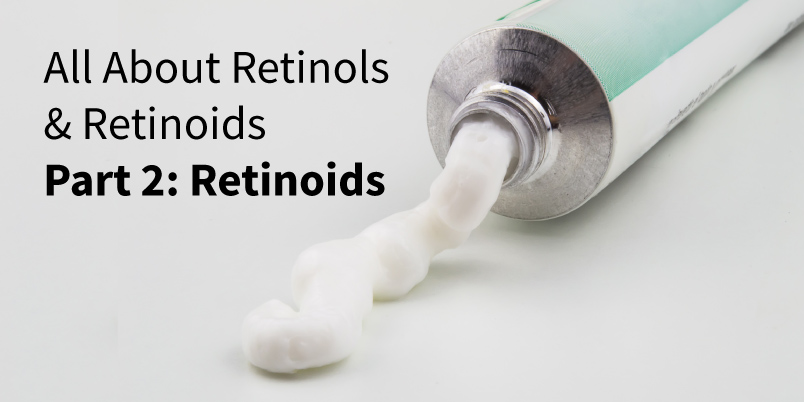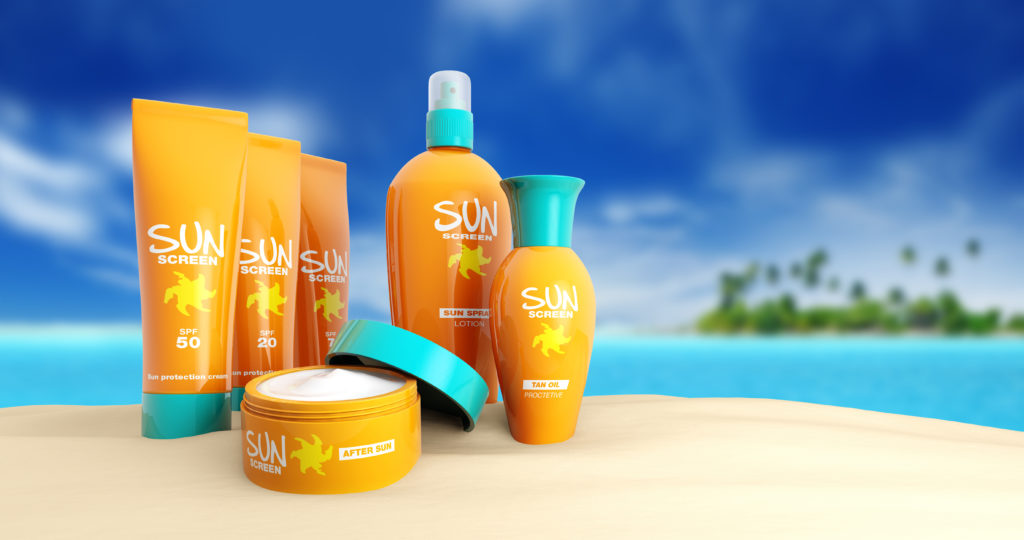 As clients age, sun exposure and natural aging processes create bigger challenges. Deep wrinkles, pigmentation problems, and other issues require stronger, more effective solutions. While retinols work great for many people, retinoids are a better option for those with significant skin damage. We’ve taken a closer look at retinoids to help you determine which products best fit your clients.
As clients age, sun exposure and natural aging processes create bigger challenges. Deep wrinkles, pigmentation problems, and other issues require stronger, more effective solutions. While retinols work great for many people, retinoids are a better option for those with significant skin damage. We’ve taken a closer look at retinoids to help you determine which products best fit your clients.
Retinoids
For clients who want fast, dramatic skin improvements, choose retinoids. Like retinols, these chemical compounds are closely related to vitamin A. However, retinoids are up to 100 times stronger than retinols. They promote new skin growth and collagen production by causing the skin to shed old cells and create new ones. They’re great for clients with significant pigmentation problems, wrinkles, and those who don’t see an effect with retinols. Learn more about retinoids to determine which solutions benefit your clients.
What makes retinoids different from retinols?
Since retinoids are a high-strength product, they require a doctor’s prescription. It’s important to carefully monitor retinoid users to find the most effective result with the least irritation. These products have a greater risk of side effects, but show incredible effects in clinical studies. They’re a great solution for clients who want fast results, taking just 4-8 weeks to see improvement. Professionals help clients determine which products are best for the client’s individual skin challenges.
Who should use retinoids?

For deeper skin wrinkles and aging skin, retinoids are a great option. If a client tries retinol products without success, try retinoids. These products repair deeper skin layers where wrinkles begin. In addition, they promote new growth while releasing older skin cells. The process makes the skin look younger and healthier. Retinoids provide a great option for clients with aging or sun-damaged skin who don’t benefit from retinol products.
Retinoid Benefits
- High-strength formulas are more likely to create positive skin changes
- Fast-acting ingredients promote early results
- Works for people who don’t benefit from retinols
Proper Use of Retinoids
While retinols are safe and easy to use, retinoids require strict adherence to a doctor’s and manufacturer’s directions. Use these tips to ensure the safe use of retinoids.
Follow directions
Retinoids require a doctor’s prescription, so it’s extremely important to follow their directions carefully. Overuse may lead to peeling, skin irritation, or toxicity.
Use a thin layer
Since retinoids are stronger than retinols, a very thin layer provides fast results. Results take 4-8 weeks, so don’t use additional retinoid products if you think they aren’t working fast enough.
Wear SPF

Since retinoids work to reverse sun damage, sunscreen is essential for high quality results. Always apply a broad-spectrum sunscreen SPF 30 or greater before you leave your home. Some retinoids can make your skin more sensitive to sunlight, so it’s especially important to use sunscreen when you’re using a retinoid.
Retinoid Side Effects
You’re more likely to see side effects with retinoids than with retinols. The most common side effects are skin irritation and peeling. However, clients who consistently overuse retinoids may experience serious side effects, including painful swellings on long bones. Contact a doctor immediately if you experience side effects from a retinoid product.
Contraindications
Women who are pregnant or breastfeeding should not use retinoids. In addition, clients who experience side effects from retinols must use extreme caution if they decide to switch to a stronger retinoid.
Popular prescription retinoids

Differin (adapelene)
This product is one of the newest, widely accepted retinoids on the market. It’s popular with clients with acne, because it’s less irritating than some other retinoids. However, it’s uncertain whether Differin has the same wrinkle-fighting effects as other retinoids.
Benefits
- Less irritating to skin
- Great for clients with acne
- Broad clinical studies and safety testing
Side effects
- Skin irritation
- Complications from overuse include dryness and other problems
Bottom line
Results are faster than retinols, but not instant. Choose this option if you have acne. A version of Differing has recently become available over-the-counter without a prescription.
Retin-A (tretinoin)
This product is one of the oldest retinoids on the market, and remains the most widely used wrinkle-fighting retinoid. It affects many cellular processes, including cell growth, collagen production, and elastin synthesis.
Benefits
- Well-established in clinical literature and widely used
- Highly effective for wrinkle improvement
Side effects
- Skin irritation
- Skin dryness
- Burning sensation during the first week of use
- Other complications from overuse or misuse
Bottom line
As the oldest retinoid, this product is a great starting point. It’s well-studied and has great clinical results.
Tazorac (tazarotene)
Clients who experience negative side effects from Retin-A often use Tazorac next. It’s equally effective at improving wrinkles, but it’s less likely to cause a burning sensation during the first week of use. According to one study, “0.1% tazarotene reduced wrinkles faster and more significantly then 0.05% tretinoin over a 24-week period.” Since it binds to different receptors than Retin-A, it’s a good choice for those who have problems with Retin-A.
Benefits
- Decreased risk of burning sensation
- Highly effective and well-studied
- Potential for faster results
Side effects
- Dry or irritated skin
- Other problems due to overuse
Bottom line
Choose this option for wrinkle control if Retin-A doesn’t work well with your skin. Try it if you want faster results.
Renova (tretinoin cream)
Renova uses the same active ingredient as Retin-A, but in a cream. While other forms of tretinoin benefit clients with acne, Renova is a common choice for wrinkle treatment.
Benefits
- Highly effective at treating wrinkles
- Typically less irritating than standard tretinoin in a gel base
Side effects
- Skin dryness
- Skin irritation
- Complications from overuse
Bottom line
You’ll see the same effects as Retin-A, in a creamy, topical application.
Retin-A micro
This product contains the same active ingredient as Retin-A, but uses micro beads to release the formula slowly. It’s typically less irritating than other retinoids, because less active ingredient contacts the skin at one time.
Benefits
- Less irritating
- Fewer side effects
- Slow-release formula
Side effects
- Minor skin irritation
Bottom line
This product is more expensive than other retinoids, but it’s a great choice if other options irritate your skin or cause dryness.
Summary
Although retinoids are more expensive than retinols, their incredible results are perfect for clients with heavier wrinkles, sun damage, and pigmentation problems. Choose a retinoid for faster, stronger results. Clients who experience skin problems from retinoids should switch to retinols, which have fewer side effects. Read our in-depth article on Retinols to learn more.



